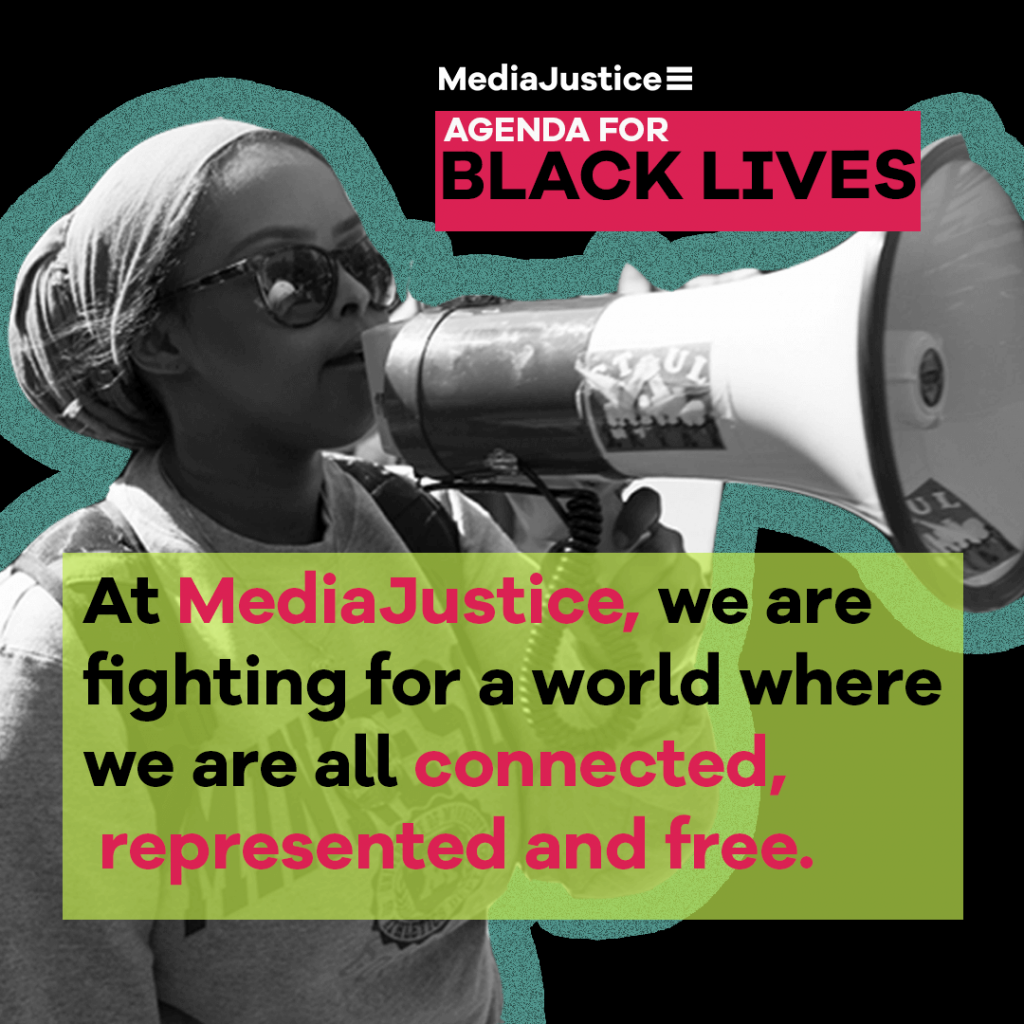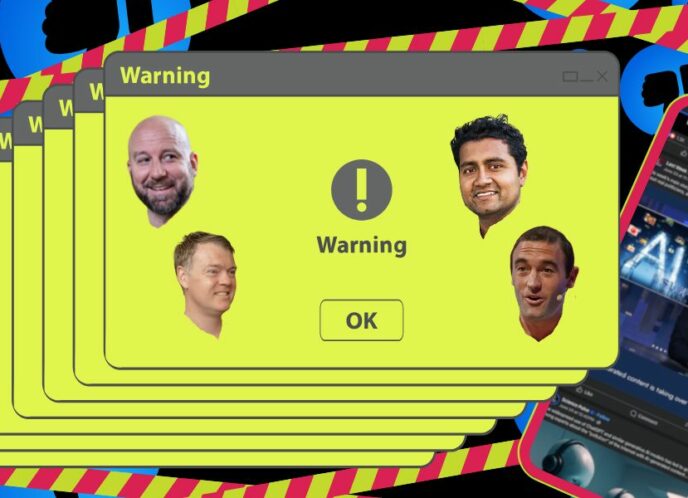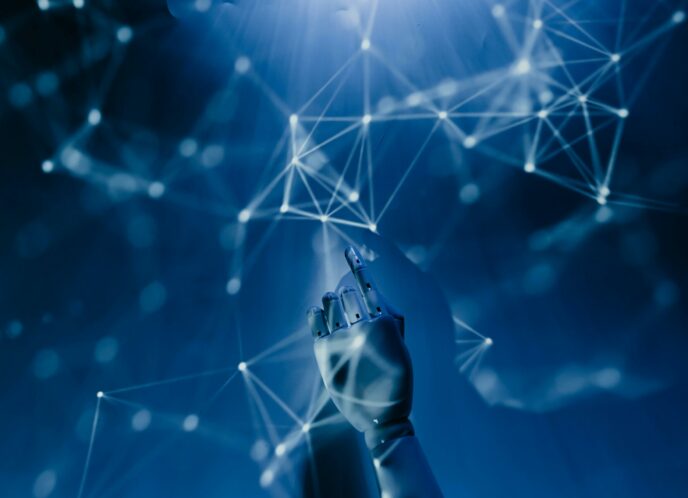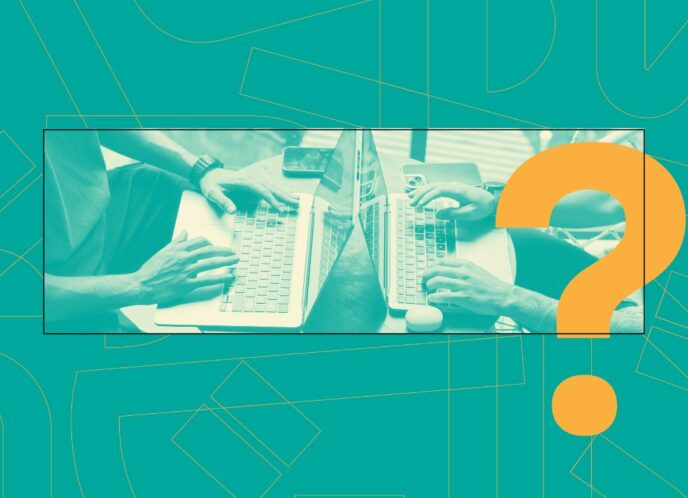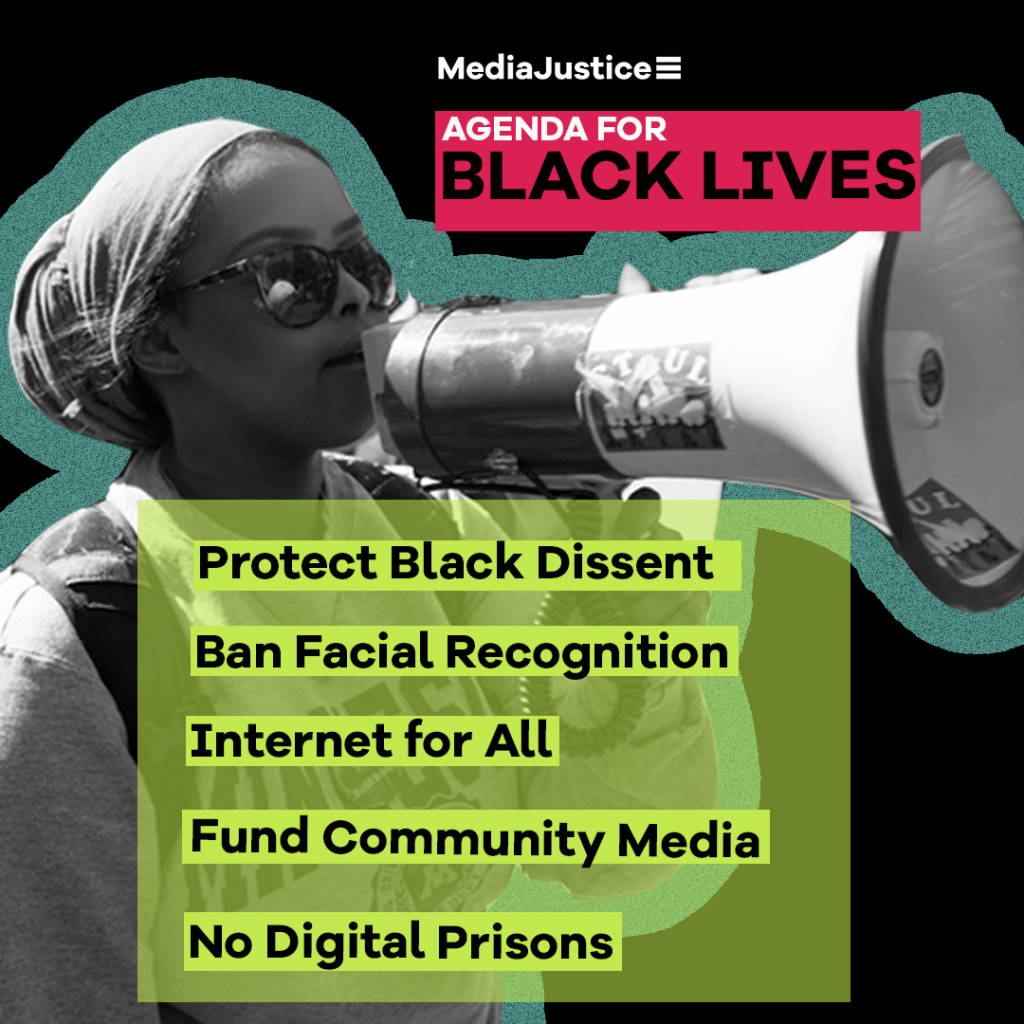
For the last few months, we have witnessed incredible acts of love and care to protect each other during the COVID-19 crisis. When it was clear that the coronavirus was more fatal in the Black community because of the legacy of discrimination and systemic racism within our health care system, we organized and demanded more testing to save the lives of our people. And as the nation would increasingly rely on the Black labor of essential workers to “shelter in place”, it was Black workers who risked retaliation for better workplace health and safety protocols. With millions of people unemployed, we’ve demanded free access to communication services so that our people can stay informed. And as prisons and jails became the new hotbed for coronavirus cases, our people continued to demand the immediate release of our incarcerated loved ones.
We now know that even in the midst of a global health crisis, Black people are still being terrorized and murdered by the police. It’s been days since the deaths of George Floyd and Tony McDade and several months since the deaths of Breonna Taylor and Ahmaud Arbery. Across the world, people are rising up in solidarity with the families who are mourning the loss of their loved ones and demanding a complete transformation of our politics and the condemnation of all institutions that participate in structural violence against Black people and communities of color.
In response, the state has doubled down on its commitment to enact violence against Black freedom fighters. Protests against police violence are being met with even more police violence—and the state is continuing to move swiftly in its escalation against activists. Trump’s designation of “antifa” as a terrorist organization is a reaction to and attack on Black dissent. Governors across the country are deploying the National Guard and making war zones out of our communities. It’s no surprise that both federal and local law enforcement are using dangerous and racist surveillance tools to identify and track protesters.
Furthermore, news coverage of the George Floyd uprisings are failing to tell the right story. Sensationalized images of “looting” by protesters and violent clashes with police dominate the media and fail to explain the core demands of protesters. Voices from people on the ground and the demands of organizers are ignored.
Finally, there are still nearly 100 million people in the U.S. without Internet, and Black folks, in particular, are being left behind. In the digital age, the quality of a job, an education, and even health care can be measured by your Internet speed. The lack of Internet, either because it’s too expensive or because there are no options, means Black folks on the wrong end of the digital divide are at a disadvantage at addressing any of the other material conditions affecting their lives.
Media and technology are mirroring the systemic oppression and inequality that undervalues Black lives. Our movements must challenge these conditions in order to drive a new reality of racial, economic, and gender justice. We call this work “media justice” where we are fighting for a world where we are all connected, represented and free. In this moment, as we hope to accelerate into a new world, we offer the MediaJustice agenda in defense of Black Lives.
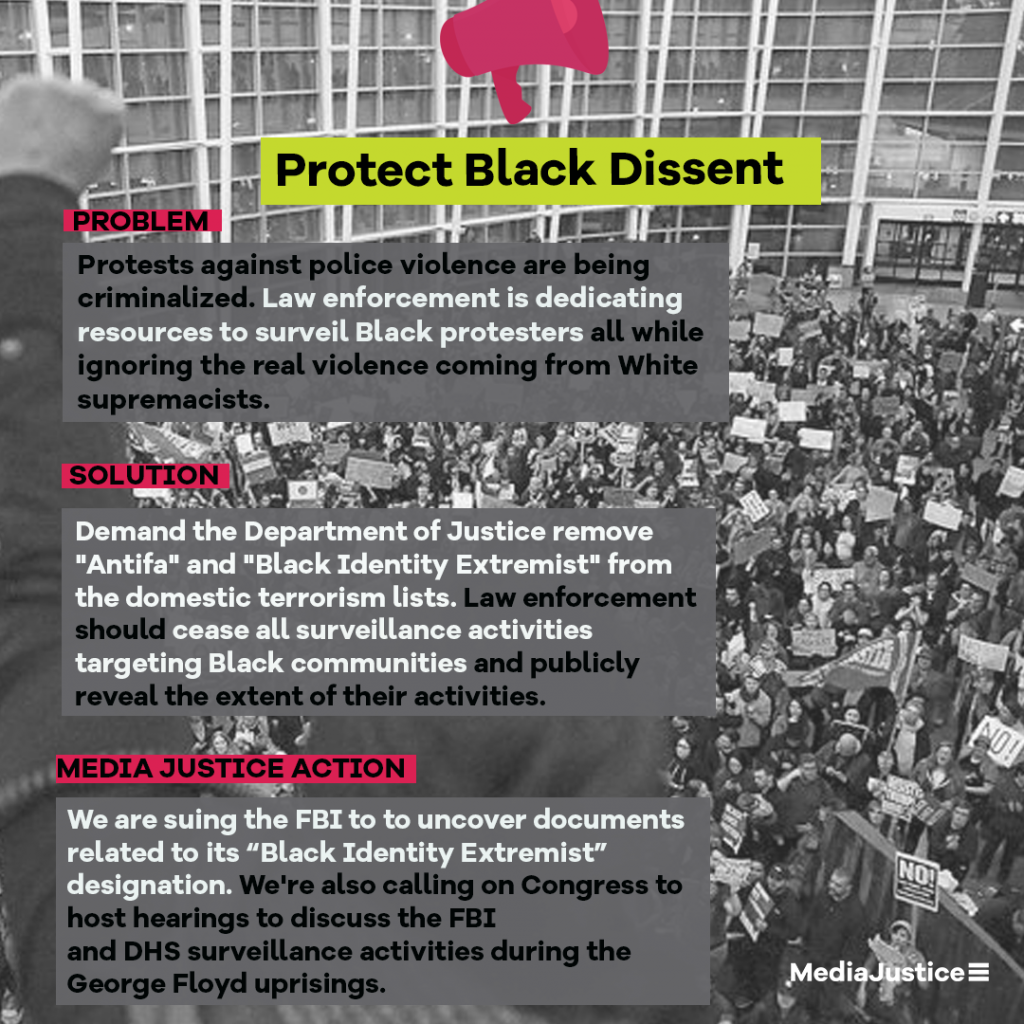
PROTECT BLACK DISSENT
It’s been three years since the FBI was exposed for surveilling Black activists under the “Black Identity Extremism” designation. Trump has continued to escalate his war against Black people and our freedom fighters, so we must urge our congressional leaders to protect Black protesters from attacks against dissent.
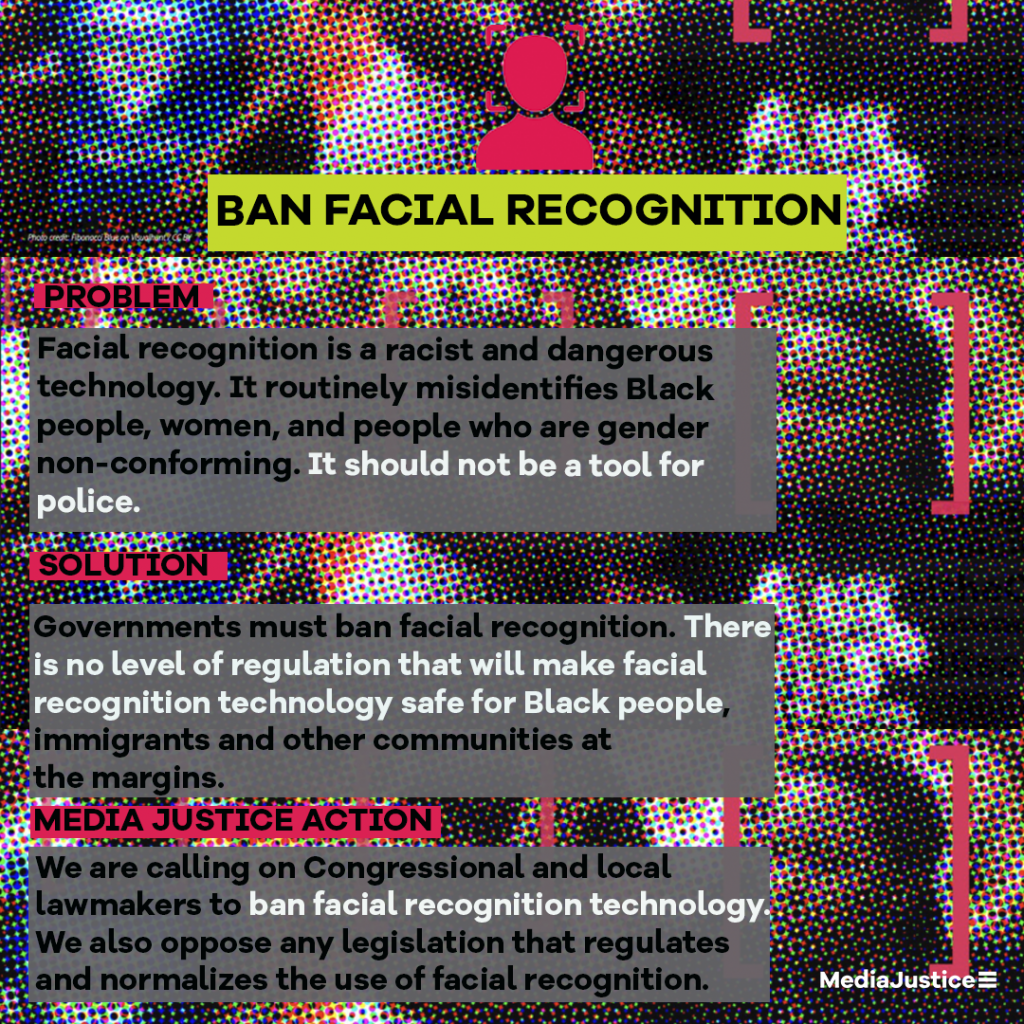
BAN FACIAL RECOGNITION
Facial recognition is a racist and dangerous technology that should not be in the hands of police. It routinely misidentifies Black people, women and people who are gender non-conforming. Governments should ban facial recognition. There is no level of regulation that will make facial recognition technology safe for Black people, other people of color, immigrants and other communities at the margins.
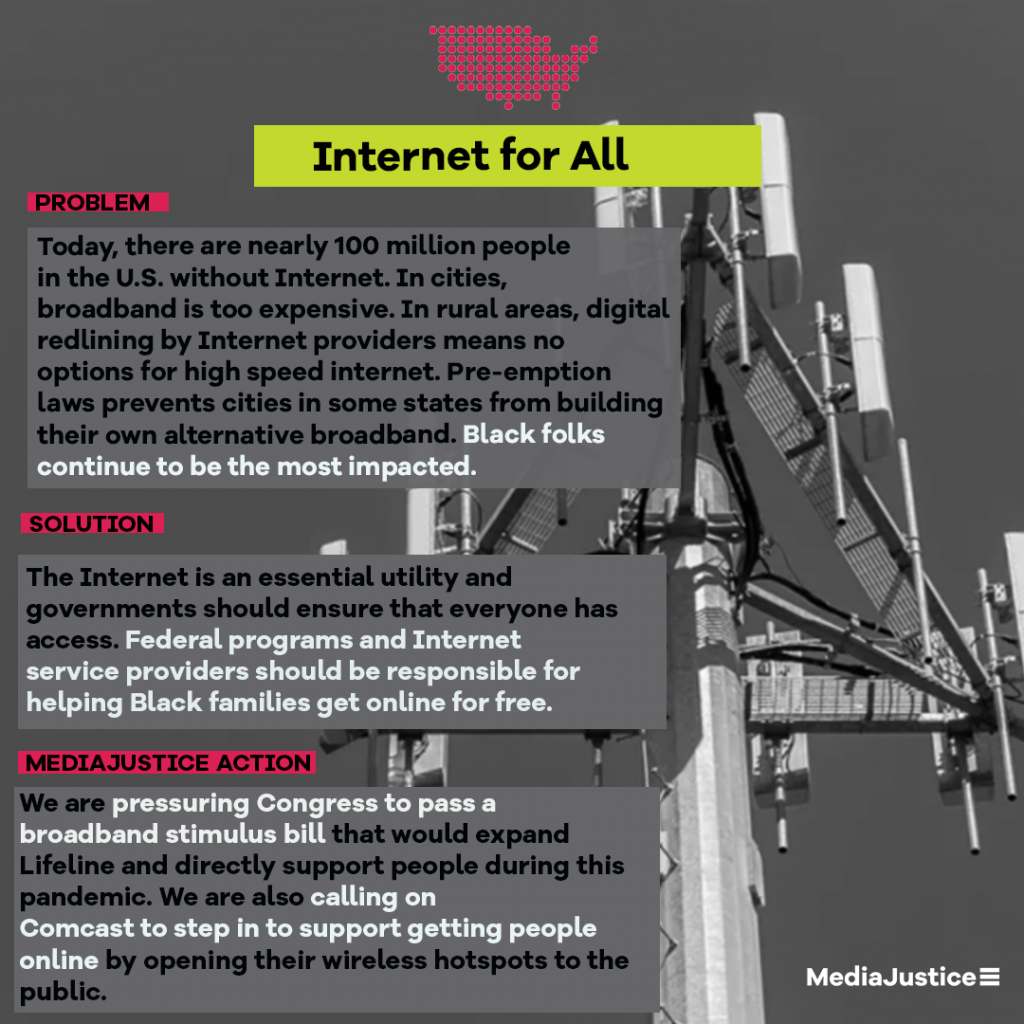
INTERNET FOR ALL
The Internet is an essential utility and governments should ensure that everyone has access to it. That means federal programs and Internet service providers should ensure all Black families can get online. It means that high-speed Internet is available everywhere and that local communities have the right to build our own broadband networks.
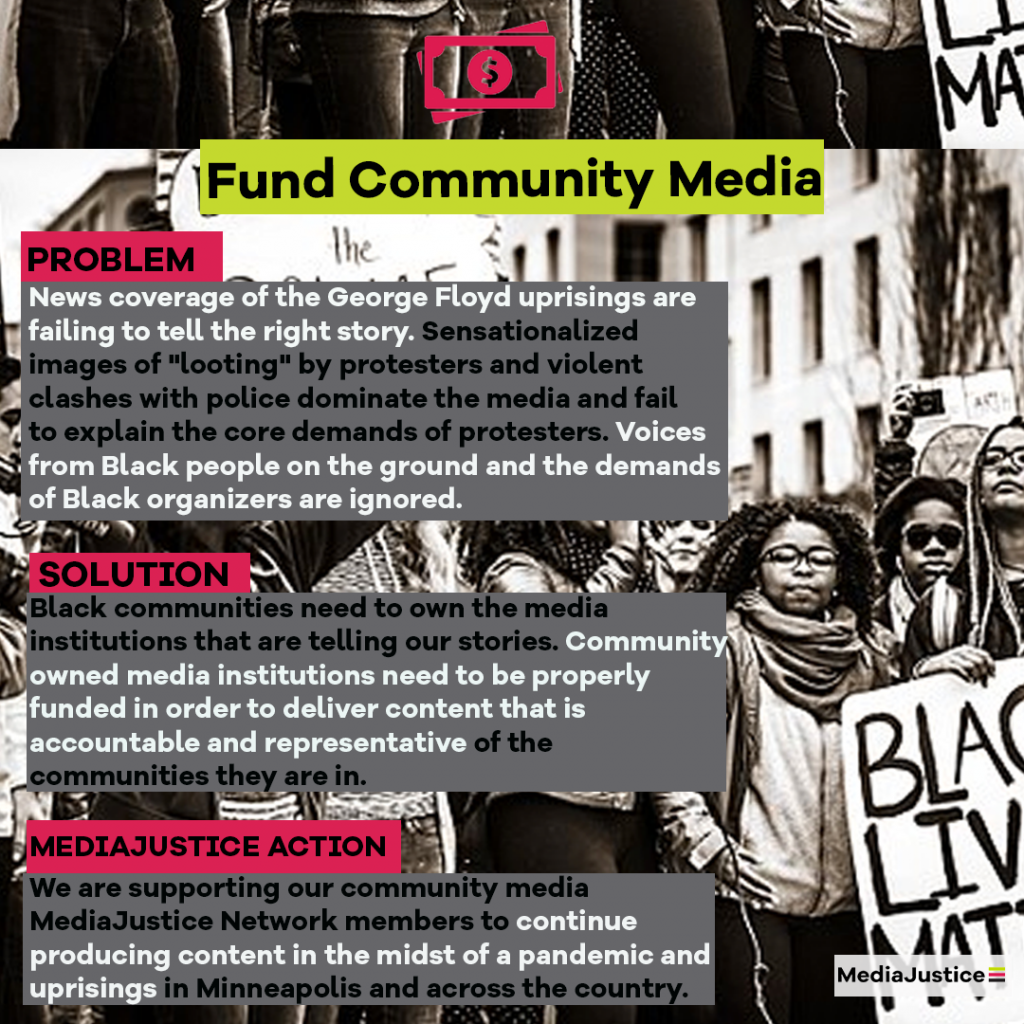
FUND COMMUNITY MEDIA
Black communities need to own the media institutions that are telling our stories. Right now, community media, like KRSM in South Minneapolis or PhillyCAM in Philadelphia, are some of the few places where Black folks can own and control our voices. These institutions need to be properly funded by federal and local governments to ensure they can meet the needs of the people.
NO DIGITAL PRISONS
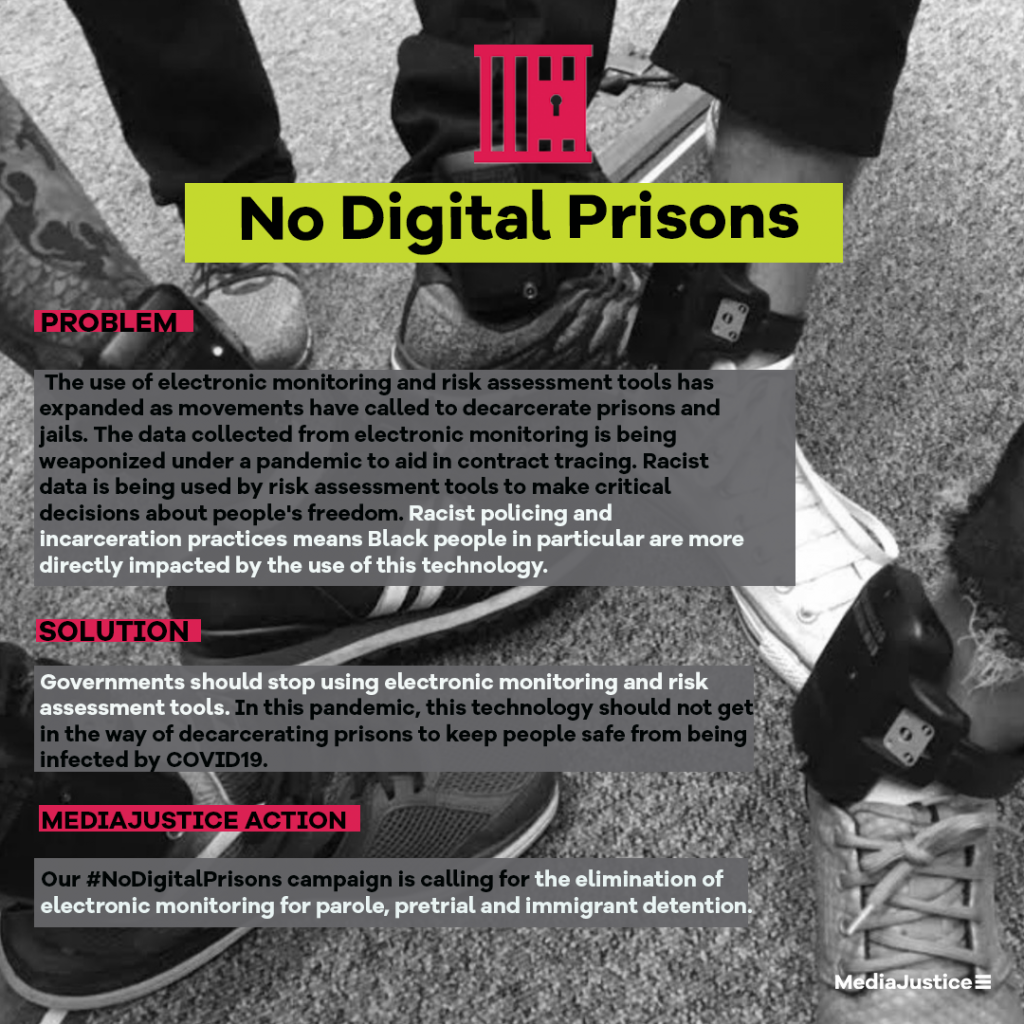
NO DIGITAL PRISONS
Freedom should not come in exchange of expanding carceral technologies, like electronic monitoring and risk assessments, that reinforce racism in the criminal legal system. And especially in this pandemic, this technology should not get in the way of decarcerating prisons to keep people safe from COVID-19. Governments should invest in services and reentry programs to ensure our people have what they need as they are released from our prisons and jails. As we organize for Black liberation, we must remain vigilant to ensure the state does not co-opt our demands for freedom.
At MediaJustice, we’re committed to being in solidarity with everyone moving forward demands for Black liberation. This week alone has shown we are equipped to keep one another safe and defend our movements. We are the ones we’ve been waiting for.
In Solidarity,
Team #MediaJustice
